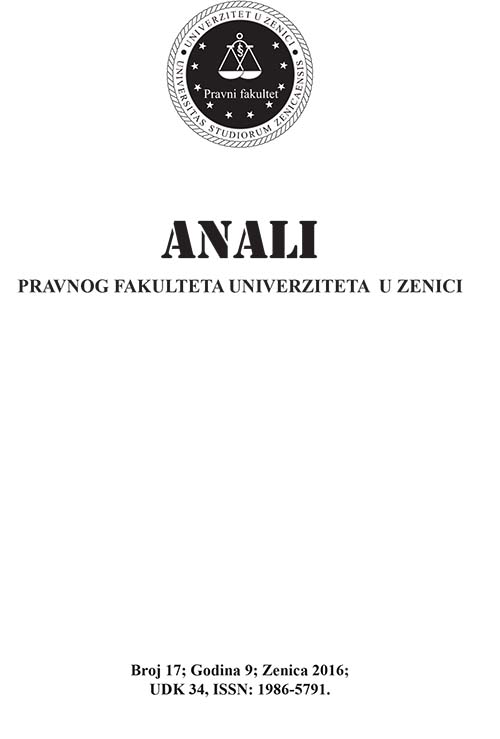ULOGA SUDA KAO TIJELA DRŽAVNE VLASTI U INSOLVENCIJSKIM POSTUPCIMA–
THE ROLE OF THE COURT AS A ENTITY OF GOVERNMENTS POWER IN THE INSOLVENCY PROCEEDINGS
Author(s): Sanja Grbić, Ines Matić Matešković, Dejan BodulSubject(s): History of Law, Public Law, Law on Economics
Published by: Pravni fakultet - Univerzitet u Zenici
Keywords: insolvency law; the role of the court; a historical perspective;
Summary/Abstract: New Bankruptcy Act (OG, no. 71/15. - hereinafter: BA) has entered into force on 01 September 2015 in the Republic of Croatia. By doing this the legislator has after three years of experimentation in the administrative procedure and through governmental bodies (as defined by the Law on financial operations and prebankruptcy settlement (OG, no. 108/12., 144/12., 81/13, and 112/13.)) repowered court in managing prebankruptcy procedure. The pressure for such reforms, or for a stronger role of the court in the new BA, was made possible by the application of art. 6 of the European Convention for the Protection of Human Rights and Fundamental Freedoms (OG-IT, no. 18/97., 6/99., 14.2., 13.3., 9.5., 6.1. and 2/10. - hereinafter: Convention). The European Court of Human Rights (hereinaf er: ECHR) indicates that Article. 6, par. 1 shall apply to bankruptcy proceedings (exempli causa, Sprl ANCA and Others v Belgium, decision, 10 December 1984). This is important because the uncertainty concerning the very legitimacy of the process of dejudicilization in (previous) model of the pre-bankruptcy settlement is the fact that the bankruptcy legal protection must be in the jurisdiction of the body that Convention points out as a “tribunal” (regardless of which of the state power it belongs). Today, these characteristics in the positive law has only the court as one of the states organs. The present economic relation with its social background imposes certain reforms in the understanding of the position of the court in bankruptcy proceedings. Analyzing the phenomenon of prebankruptcy settlement requires persistence and irrational thinking to ignore the obvious fact that the bankruptcy process, understood in the broadest sense, is and was traditionally court process, i.e. proceedings pending before the competent court. Of course, there are certain non-judicial (informal) arrangements, such as pre-pack model, but they ultimately must be verified and validated by the court. Therefore, in order to confirm the above thesis, the authors analyze and justify the role of the court in bankruptcy proceedings starting from Roman law to the new Croatian BA and recent case law of the ECHR related to art. 6. This paper will analyze the case law of the European Court of Human Rights in the proceedings under art. 6 of the European Convention (right to access to court) because the authors assume that such information have key role in understanding the work, as well as the proper interpretation of the term “court”, which is based on the law of the European Court of Human Rights and the European positive law. The importance of this paper highlights the fact that in the Bosnia and Herzegovina are discussed proposals that are achievable in the bankruptcy legislation of its entities and Brcko District, and they are concerning the reception of the court reorganization model and institute of the pre-bankruptcy settlement
Journal: Anali Pravnog fakulteta Univerziteta u Zenici
- Issue Year: 9/2016
- Issue No: 17
- Page Range: 13-42
- Page Count: 30
- Language: Croatian

